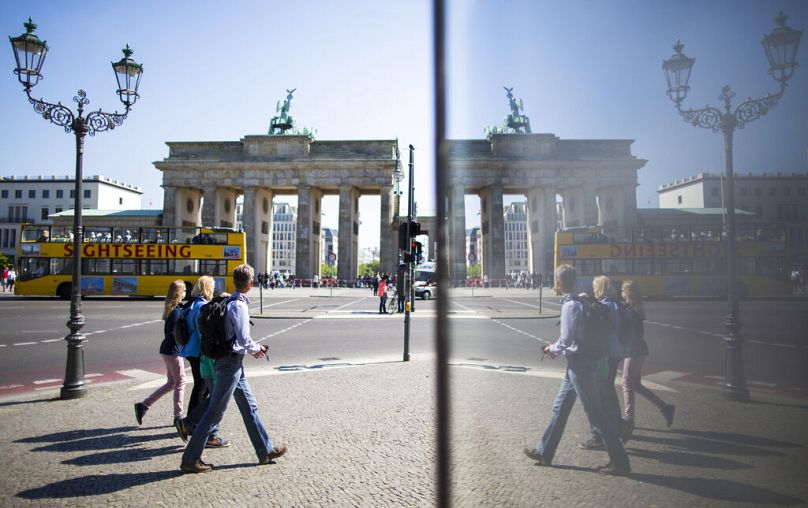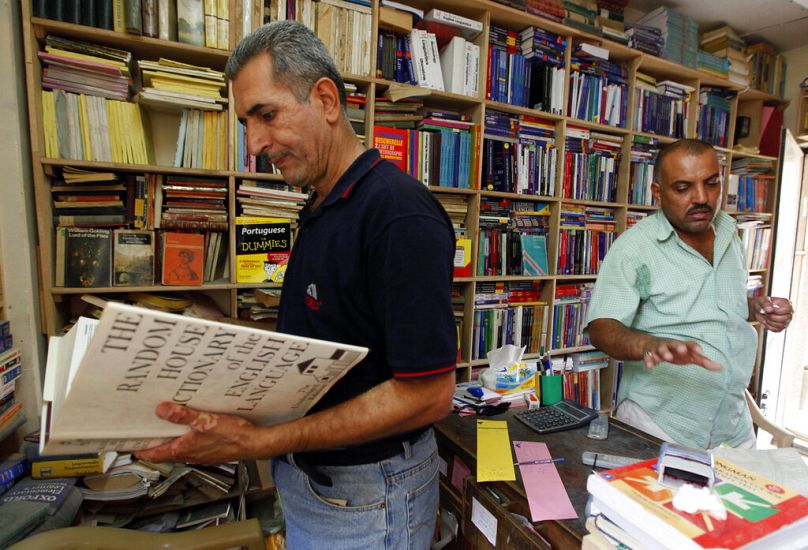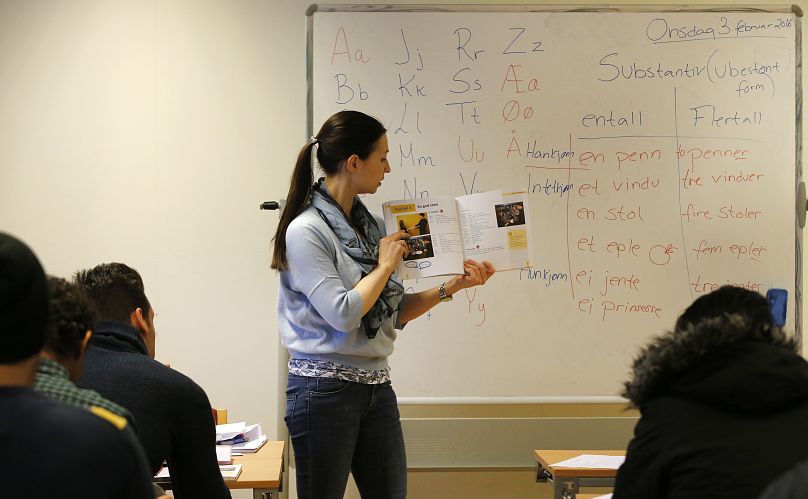Through my work, I've witnessed the profound impact that even basic Arabic language skills can have in fostering human connections and reigniting enthusiasm for education, Simone Britz writes.
At the age of 10, my life took a new turn when a family with five children moved into the neighbourhood.
 ADVERTISEMENT
ADVERTISEMENT
 ADVERTISEMENT
ADVERTISEMENT
They spoke Arabic instead of German, and they were a stark contrast to the familiar faces of my friends and classmates. This encounter marked the beginning of a deep affection for the Arabic language that would significantly shape my life.
I grew up in a typical, middle-class neighbourhood in Berlin. The newly arrived family had fled the civil war in Lebanon, arriving in Germany with very little.
Although I couldn't speak Arabic at first, I quickly formed a bond with the two girls, who were my age.
We forged a unique language connection: they started learning German, and I began my journey with Arabic. Soon, I knew a few Arabic letters, as well as basic questions like, "What is your name?" "How old are you?" and "Are you crazy?”
Renewed connection rekindles fascination
My family relocated when I began secondary school, causing me to lose contact with the Lebanese family.
Nevertheless, my passion for languages persisted, leading me to enrol in Chinese courses during my university years. While I found Chinese fascinating, it didn't ignite the same enthusiasm within me as Arabic.
After a few years, I reconnected with my Lebanese friends, rekindling my childhood fascination with the Arabic language.
This renewed interest prompted me to make a firm decision to learn Arabic once more. To accomplish this, I pursued a master's degree program in Arabic and Islamic Studies at the Free University of Berlin.
I also expanded my studies by attending courses at Cairo University in Egypt and the University of Damascus in Syria.
My career path wasn't initially set on teaching. I started out in publishing but stumbled upon an opportunity from the German Development Service (DED) to prepare someone for an assignment in an Arabic-speaking country.
I accepted the challenge, and that marked the start of my career as an Arabic teacher. I first taught at the German-Arab Friendship Society and later for GIZ and various foundations.
Elegance, complexity, and beauty through poetry
At first, being a non-native Arabic speaker was seen as a disadvantage in the teaching field.
Many doubted that I, a native German, could effectively teach Arabic. However, I soon discovered that my unique perspective was an advantage in the classroom.
I could relate to the struggles Arabic learners face, and I served as an example of someone who overcame those challenges to achieve fluency.
My love for Arabic extends to its grammar, the structure of Modern Standard Arabic, and the elegance and fluidity of its colloquial forms.
Arabic poetry holds a special place in my heart. When confronted with individuals harbouring prejudices against the Arabic language, I find it easy to showcase its power and beauty through poetry.
Arabic poetry boasts a rich and ancient tradition characterised by incredible elegance and complexity.
I take great pleasure in sharing examples of renowned female poets and stories of tribal disputes settled through poetry competitions.
Connecting through understanding
Today, I am involved with the Federal Foreign Office and the German-Arab Friendship Society (DAFG). In my role, I train teachers who are not native Arabic speakers but instruct Arabic-speaking students in their classrooms.
These teachers report significant improvements in their ability to understand, connect with, and communicate with their Arabic-speaking students after even basic Arabic lessons.
One teacher shared how the entire classroom atmosphere relaxed as a result of his efforts to learn Arabic, however imperfectly he might speak it.
As German-speaking teachers strive to learn Arabic, they become better equipped to teach German or other languages to Arabic-speaking students, thanks to their improved understanding of the language differences.
Students who once left school due to language barriers now return because their teachers can converse with them in Arabic.
Parents who never attended parent-teacher conferences are now eager to participate because the teachers have shown interest in them.
In these classrooms, the roles of students and teachers sometimes reverse, as students become tutors, imparting Arabic knowledge to their instructors following a German lesson.
We have to do away with barriers and misunderstandings
I've noticed a growing demand among teachers for these Arabic language courses, to the extent that we could potentially open three new courses every six months.
Teaching teachers can be challenging, but the successes and feedback we receive are incredibly rewarding and motivating.
My dream is a world where language barriers and cultural misunderstandings no longer hinder students from accessing education.
Through my work, I've witnessed the profound impact that even basic Arabic language skills can have in fostering human connections and reigniting enthusiasm for education.
Simone Britz is an Arabic language educator with the German Federal Foreign Office and the German-Arabic Friendship Society (DAFG) in Germany.
At Euronews, we believe all views matter. Contact us at view@euronews.com to send pitches or submissions and be part of the conversation.













